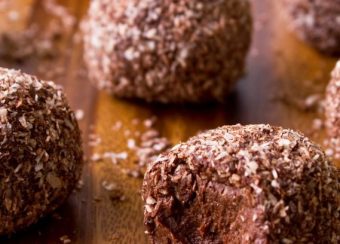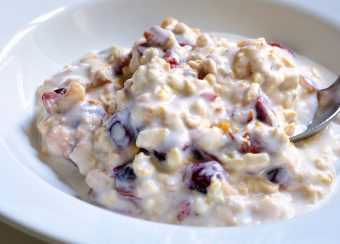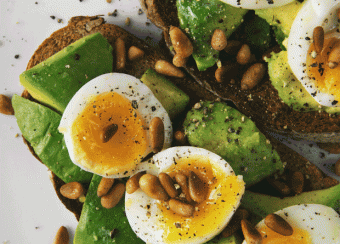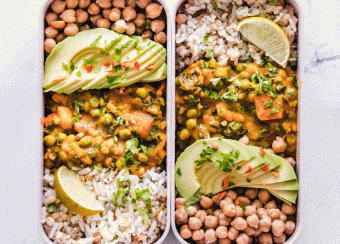A Beginner’s Guide to a Plant-Based Diet
03/01/2022 2022-03-10 20:21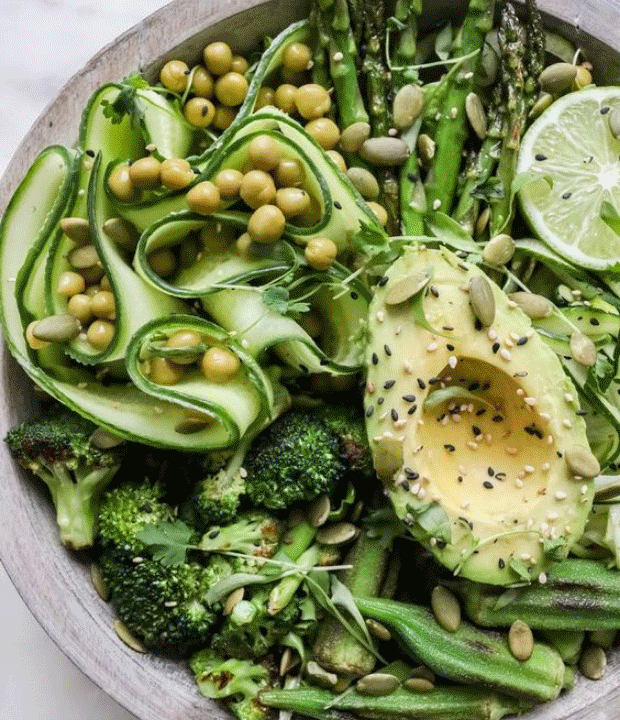
A Beginner’s Guide to a Plant-Based Diet
A new year presents many opportunities for a fresh start. Although we’re not ones to push an endless list of ‘resolutions’, it’s sometimes nice to lie back and think about ways you might like to make improvements in your life as we head into 2022.
One goal that many of us have in mind is consuming less meat, which has been proven time and time again to be a positive change on many levels. There are three different approaches to the above as well, depending on your own health and the level of commitment you’d like to make. People who follow vegan diets abstain from consuming any animal products, including dairy, meat, poultry, seafood, eggs, and honey, while a vegetarian will exclude all meat and poultry from their diets, but perhaps still eat eggs, seafood, or dairy. A flexitarian will eat mostly plants, but animal products aren’t off-limits.
Whether you’re aiming to gradually transition to vegetarianism, a vegan lifestyle, or just reduce your intake of meat, flexitarian-style, we’ve outlined some of the main things to think about before making the change.
Celebrate a reduced carbon footprint
A popularly cited 2018 analysis of the international food industry suggests that switching to a plant-based diet represents the largest single action a person can take to reduce their environmental impact. Pound for pound, animal protein requires 100 times as much water as grain protein—and the production of oat milk emits 80 per cent fewer greenhouse gases and requires 60 per cent less energy than cow’s milk. Still, switching to a plant-based diet doesn’t guarantee more eco-friendly food choices: growing practices, the distance food travels, packaging, and ingredient sourcing all contribute to how sustainable the food on your plate is—or isn’t. We recommend doing a little research and embracing local as much as possible.
Boost your gut health
Vegetarian and vegan diets have been shown to promote a healthy mix of beneficial bacteria promoting gut and overall health. A healthy gut biome promotes a high-functioning metabolism, strong immune system, healthy bowel movements, and appropriate levels of hormones that contribute to adequate appetite regulation. Just 16 weeks of a healthy vegan diet focused on whole fruits and vegetables has been shown to cause a documented improvement in gut health, according to research presented in 2019 at the European Association for the Study of Diabetes in Barcelona.
Improve your athletic performance
The myth of the tired, iron-depleted vegetarian is just that – especially when you eat a variety of nutrient-packed foods. A growing number of professional athletes have turned to a whole-foods, plant-based diet to reach optimal performance. Colin Kaepernick, Venus Williams, All Black TJ Perenara, and dozens more pros are all vegan, and there’s a lot of science backing up whole plants as a great choice for athleticism. The anti-inflammatory principles and immune support of plants also benefit athletes in major ways. Tennis pro Venus Williams transitioned to a plant-based diet after being diagnosed with an autoimmune disease called Sjögren’s syndrome and said a vegan diet allowed her to manage the disease without prescription medications.
Lower your cholesterol
High cholesterol can lead to fatty deposits in the blood, which can restrict blood flow and potentially lead to a heart attack, stroke, or heart disease later in life. But a healthy diet can help keep cholesterol levels in check. Specifically, moving away from a diet filled with animal products toward one that’s primarily plant-based can lower LDL (“bad”) cholesterol by between 10 and 15 per cent, while those following a strict vegan diet can lower their LDL cholesterol by as much as 25 per cent.
Take it slow, and do your research
When beginning your journey to plant-based, it’s important to do a little research to ensure that a) you’re getting all of the nutrients you need, and b) that you’re eating meals that you actually enjoy! Swapping out your usual eye fillet for a bowl of spinach definitely won’t cut it – on both fronts.
Plant-based diets inherently focus on whole grains, beans, fresh produce, seeds, and nuts, but not everyone who eats plant-based diets eschews animal products entirely from the get-go. As with all diets, it’s important to consider your genetics, activity level, pre-existing medical conditions, and any nutritional deficiencies or food allergies. In particular, those adopting plant-based diets are wise to make sure they’re getting sufficient levels of vitamins and minerals, from B12 to omega-3 fatty acids.
Treat each meal as an experiment rather than a chore. At least twice a week for dinner, start by whipping up a super-powered salad or veggie stir fry with different store-bought sauces so meals are easy to prepare and ingredients easy to source. As the nights get cooler add in some veggie curries and chili, packed with protein, flavour, and nutrition. Before you know it you’ll be reaping the benefits – and so will the planet.



